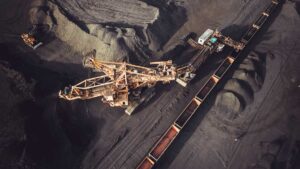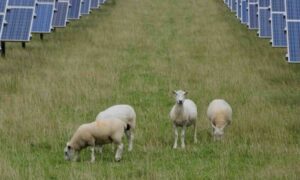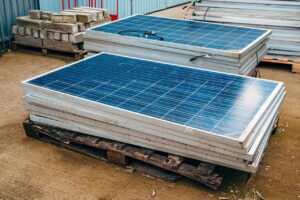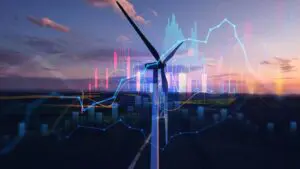The island nation of Fiji will become home to the largest solar project of its kind in the Pacific, a 15MW project that will significantly lower the country’s reliance on costly imported fossil fuels.
Energy Fiji Limited (EFL), the government-owned electricity generator, transmitter, and retailer on the larger Fijian islands of Viti Levu, Vanua Levu, and Ovalau, has signed an agreement with the International Finance Corporation (IFC), a member of the World Bank Group, to deliver the 15MW solar project which will supply electricity to the national grid.
The $A21 million project is expected to generate enough electricity to transition 14,000 Fijian households to solar energy and will dramatically reduce Fiji’s reliance on imported fossil fuels.
Currently, approximately 45% of Fiji’s power needs are supplied through fossil fuels, 50% through hydropower, and the remaining 5% from biomass and wind. However, as an island nation, Fiji’s fossil fuel needs are almost entirely reliant upon imports, generating a fuel import bill of $FJD1.17 billion (around $AU700 million) in 2019, which accounted for 20% of the country’s total imports.
With 90% of Fijians connected to EFL’s power grid requiring total generation capacity of around 267MW daily, even a comparatively small 15MW solar project delivers a noticeable benefit of around 5% of the country’s power needs.
“EFL needs to meet Fiji’s demand for electricity, which is growing with the increase in connectivity to rural customers via grid extension and the ever-increasing demand from industries and the business community,” said EFL Chief Executive Officer Hasmukh Patel.
“Ideally, we would like to be self-sufficient in terms of energy sources and reduce our dependency on imported fuel. Fortunately, Fiji has a lot of renewable energy sources and we are working with our development partners to explore these.”
EFL and IFC will now move forward with the selection of a private sector partner to support delivery of the solar project. IFC is also setting up to assist EFL in exploring other potential renewable energy sources on the island of Vanua Levu.
“The private sector will be crucial in the Fijian Government’s target of sourcing 100 percent of its power generation from renewable energy by 2030,” said Deva De Silva, IFC Resident Representative in Fiji, Kiribati, Samoa, Tonga and Tuvalu.
“Through this partnership with EFL, we hope to demonstrate how the private sector can be attracted to invest in renewable energy through a transparent process and well-structured project, setting an example for other Pacific nations.”
The IFC is supported by the governments of both Australia and New Zealand through the Fiji Partnership, which was launched in 2016 with initial funding from Australia as a way to spur economic growth, jobs, and private sector development in Fiji.
New Zealand’s involvement in the Fiji Partnership was announced in October 2019, helping to meet the Partnership’s goal of mobilising $AU280.5 million in new private sector investment in Fiji. The Partnership also seeks to improve access to infrastructure for 100,000 people, improve access to finance for people and enterprises, and economically empower women.
The IFC is also working with the government of Solomon Islands, another South Pacific island nation, on the 15MW Tina River Hydropower Development Project, which will not only serve to transition the country from almost total reliance on imported diesel to generating the majority of its power needs from renewable energy, but will also reduce the cost of electricity for the country’s population.
Australia has contributed significantly towards the Tina River Hydropower project, providing an initial $AU28.8 million through the World Bank, and in June of this year committed another $A330,000 to support the project.






